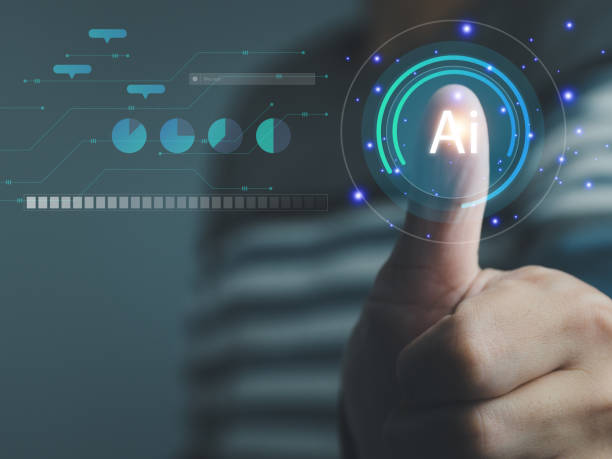Introduction to Artificial Intelligence and its Impact on the Job Market
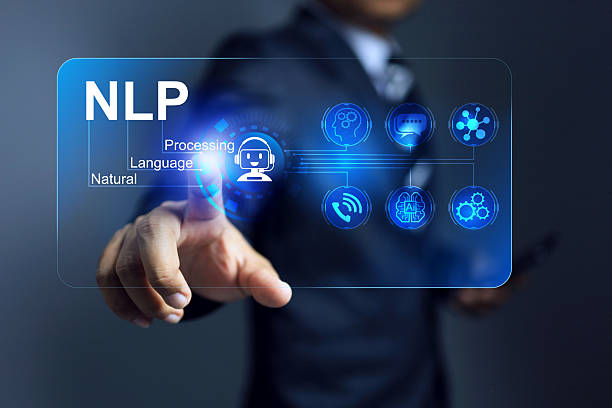
Artificial Intelligence (AI) is rapidly reshaping various industries and profoundly impacting the job market.
From automating repetitive tasks to creating new job opportunities, AI plays a pivotal role in determining the future of AI jobs.
This chapter explores what AI is, its types, and how it influences different industries.
AI is no longer a science fiction concept; it’s a tangible reality that has permeated our daily lives.
From voice assistants like Siri and Google Assistant to recommender systems on online platforms, AI is ubiquitous.
#Machine_Learning, #Natural_Language_Processing, and #Computer_Vision are all rapidly advancing subfields of artificial intelligence.
These advancements have led to the creation of powerful tools and systems that can perform tasks previously only accomplishable by humans.
These changes are creating new opportunities as well as challenges for the workforce.
The future of AI jobs depends on the readiness of individuals and organizations to adapt to these changes.
In this article, we will delve deeper into these opportunities and challenges.
Did you know that customers’ first impression of your company is your website? Multiply your business’s credibility with a powerful corporate site from Rasawb!
✅ Custom and eye-catching design tailored to your brand
✅ Improved user experience and increased customer acquisition
⚡ Get a free consultation!
Jobs at Risk of Automation by Artificial Intelligence
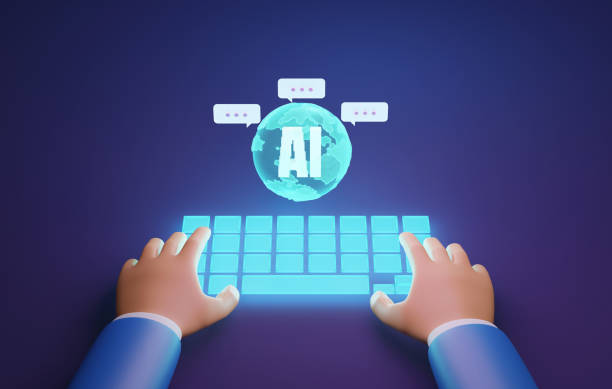
One of the main concerns regarding the future of AI jobs is the potential for job automation.
Some jobs are more at risk than others.
Occupations involving repetitive and routine tasks, such as data entry, invoice processing, and basic customer service, can easily be automated by AI systems.
Drivers, telephone operators, and factory workers are also at high risk.
The future of AI jobs for these individuals may be uncertain, but it’s important to seek opportunities for retraining and acquiring new skills.
However, automation does not necessarily mean the complete elimination of jobs.
In many cases, AI can serve as a tool to increase productivity and efficiency.
Instead of fully replacing human labor, AI can take over tedious and repetitive tasks, allowing employees to focus on more complex and creative responsibilities.
The future of AI jobs in this scenario involves human-machine collaboration, where both leverage each other’s strengths.
Creating New Job Opportunities in the Field of Artificial Intelligence
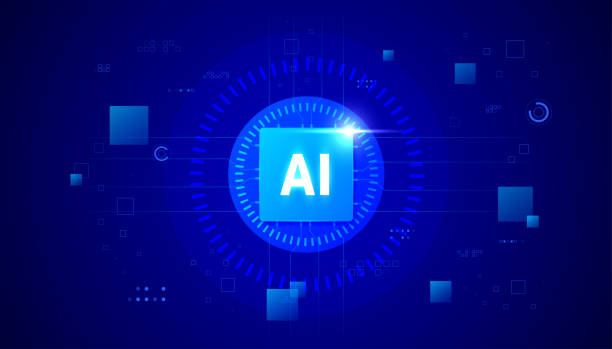
While automation threatens some jobs, AI also creates new job opportunities.
Demand for AI specialists, data scientists, machine learning engineers, and robotics experts is increasing.
These jobs require specialized skills, but with proper training and effort, individuals can prepare themselves for these new roles.
The future of AI jobs in these areas looks very bright.
In addition to technical jobs, AI also creates opportunities in related fields, such as project management, marketing, and sales.
Companies need individuals who can understand AI technologies and explain how to use them to improve their business.
The future of AI jobs is not limited to engineers and data scientists but also includes individuals with hybrid skills.
Below are two tables that refer to new job opportunities in the field of artificial intelligence and jobs at risk of automation by artificial intelligence:
| Job Title | Description | Required Skills |
|---|---|---|
| Data Scientist | Analyzing data and extracting meaningful patterns | Statistics, Machine Learning, Programming |
| Machine Learning Engineer | Developing and implementing machine learning models | Programming, Mathematics, Software Engineering |
| Robotics Specialist | Designing, building, and maintaining robots | Mechanical Engineering, Electrical Engineering, Programming |
The Role of Education and Upskilling in Adapting to the Future of AI Jobs
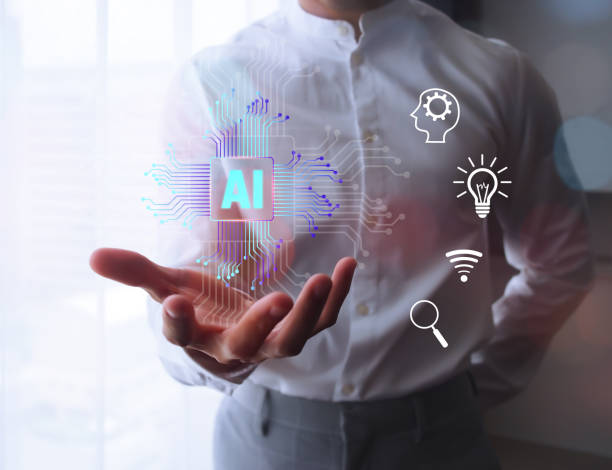
To adapt to the future of AI jobs, individuals must acquire new skills.
Education and upskilling play a vital role in this area.
Online courses, workshops, and university programs can help individuals gain the knowledge and skills needed to succeed in new occupations.
The future of AI jobs requires individuals who can continuously learn and adapt to technological changes.
Soft skills, such as critical thinking, problem-solving, and communication, are also gaining increasing importance.
AI can automate many routine tasks, but soft skills that require creativity and human interaction are still valuable.
The future of AI jobs requires individuals who can effectively collaborate with machines and utilize AI as a tool to enhance their performance.
Are you tired of losing business opportunities due to not having a professional corporate website?
Rasawb, with its professional corporate website design, helps you:
✅ Build a powerful and reliable image for your brand
✅ Convert site visitors into loyal customers
⚡ Get a free consultation now!
Industries Most Affected by Artificial Intelligence
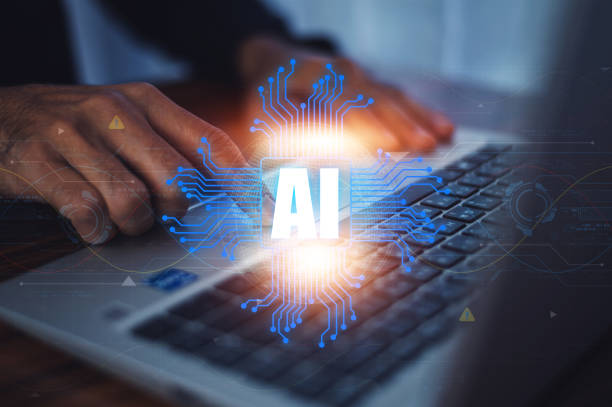
Some industries are more affected by artificial intelligence than others.
The healthcare industry, with AI’s potential for disease diagnosis, personalized treatment, and efficiency improvements, is at the forefront of this transformation.
The transportation industry, with self-driving cars and intelligent traffic management systems, is also experiencing major changes.
The future of AI jobs in these industries will be very prosperous.
The financial, manufacturing, and retail industries are also investing heavily in artificial intelligence.
From fraud detection systems to industrial robots and virtual shopping assistants, AI is changing the way work is done in these industries.
The future of AI jobs in each industry depends on how this technology is used to improve performance and create value.
Ethical and Social Challenges of Artificial Intelligence in the Workplace
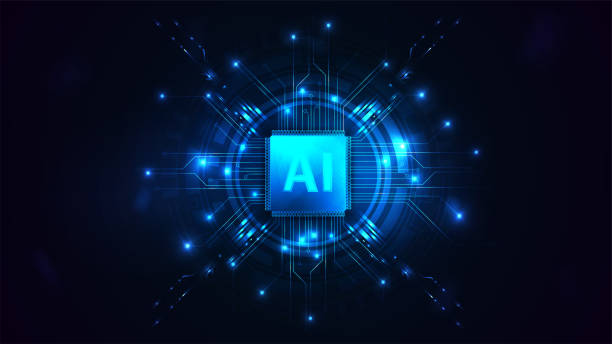
Artificial intelligence poses numerous ethical and social challenges in the workplace.
Concerns about data privacy, algorithmic bias, and the accountability of AI systems are growing.
The future of AI jobs must be shaped by considering these challenges.
It is necessary to formulate laws and regulations governing the use of artificial intelligence in the workplace.
Companies must establish transparent policies regarding data and algorithm usage and ensure that AI systems operate fairly and without discrimination.
The future of AI jobs must be designed to protect the rights and dignity of employees.
The Changing Role of Leadership and Management in the Age of Artificial Intelligence
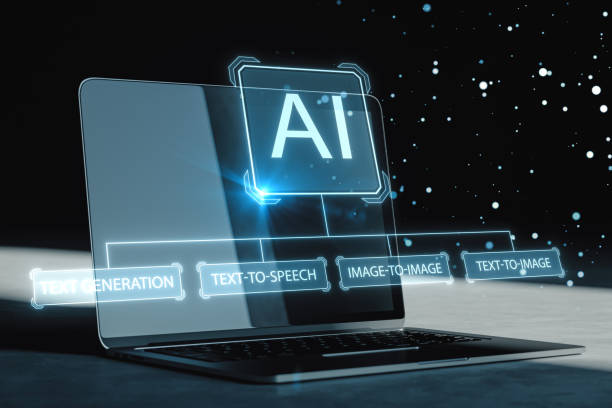
Artificial intelligence is transforming the role of leadership and management in organizations.
Managers must learn how to collaborate with AI systems and how to train their teams to use these technologies.
The future of AI jobs requires leaders who can offer a strategic perspective on how to leverage AI to enhance business performance.
Leaders must acquire new skills, such as understanding algorithms, data analysis, and managing AI-related risks.
They also need to be able to change the organizational culture to encourage people to experiment and innovate with AI.
The future of AI jobs requires leaders who can manage change and prepare their organization for success in the new era.
| Leadership Skills | Description | Importance in the Age of AI |
|---|---|---|
| Strategic Thinking | Ability to see the big picture and set long-term goals | Essential for leveraging AI towards organizational objectives |
| Change Management | Ability to guide the organization through changes brought by AI | Crucial for adapting to new technologies |
| Communication Skills | Ability to effectively communicate with teams and stakeholders | Important for creating a shared understanding of AI |
The Impact of Artificial Intelligence on Freelance Jobs and the Gig Economy
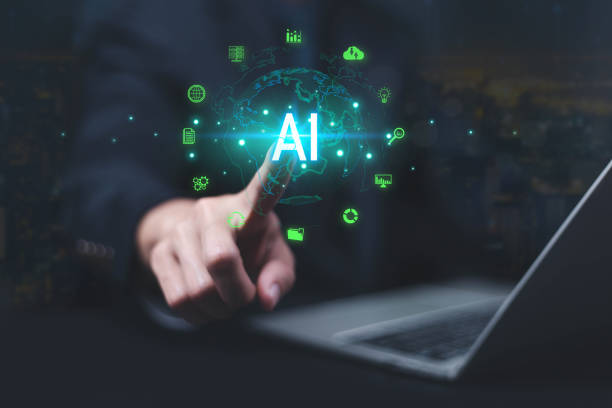
Artificial intelligence also affects freelance jobs and the gig economy.
Online platforms use AI to match freelancers with suitable projects and to automate project management tasks.
The future of AI jobs in this area depends on the extent to which freelancers adapt to these technologies.
Freelancers must acquire new skills to compete with AI systems.
They should focus on specialized and creative skills that are not easily automatable.
The future of AI jobs will be bright for freelancers who can use AI as a tool to enhance their performance.
Is your e-commerce site ready to attract maximum customers and increase sales? Rasawb transforms your online business with modern and efficient e-commerce website designs.
✅ Increased speed and improved SEO
✅ Excellent user experience on mobile and desktop⚡ Get a free e-commerce website design consultation from Rasawb!
The Role of Government and Policymaking in Shaping the Future of AI Jobs
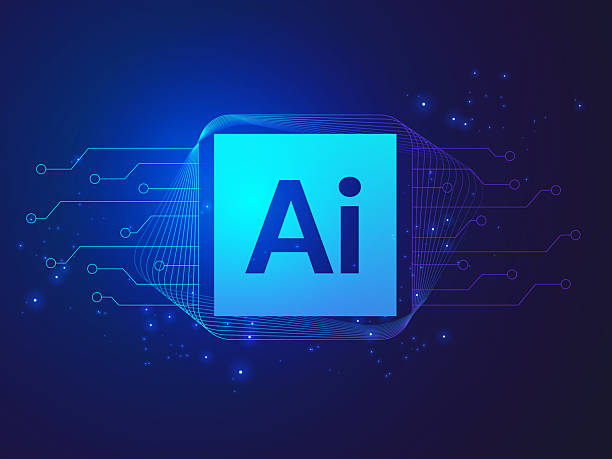
Governments play a crucial role in shaping the future of AI jobs.
Government policies can help promote innovation, support education and upskilling, and regulate the use of artificial intelligence.
Governments should increase investment in AI research and development and create programs to support workers affected by automation.
The future of AI jobs must be shaped through collaboration between government, industry, and civil society.
Governments must also formulate laws and regulations to govern the use of artificial intelligence in the workplace.
These laws should help protect data privacy, prevent algorithmic discrimination, and ensure the accountability of AI systems.
The future of AI jobs must be fair and sustainable, preserving the rights and dignity of all individuals.
Probable Future Scenarios and Preparation for Changes
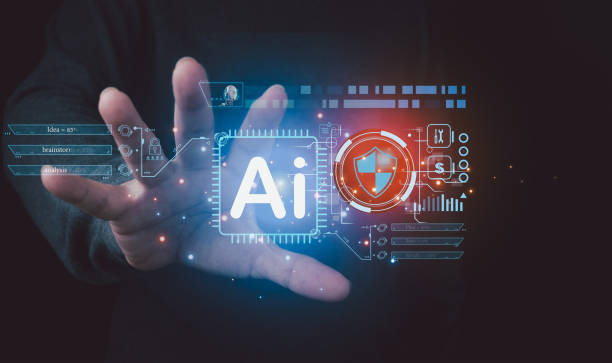
Accurately predicting the future of AI jobs is difficult, but it’s possible to consider probable scenarios and prepare for changes.
One scenario is that AI will lead to the creation of new jobs and increased productivity, but there will be a need for extensive education and upskilling to adapt to these changes.
Another scenario is that AI will lead to widespread job displacement and increased inequality, which will require strong support policies and new social security systems.
Whatever the future of AI jobs holds, readiness for change is key.
To prepare for the future of AI jobs, individuals must continuously learn, acquire new skills, and adapt to new technologies.
Organizations must foster a culture of innovation and invest in employee training.
Governments must formulate policies to support workers and promote sustainable economic growth.
The future of AI jobs requires the collaboration and interaction of all stakeholders.
Frequently Asked Questions
| Question | Answer |
|---|---|
| What impact will AI have on the future job market? | AI will automate repetitive jobs, but at the same time, it will create new and more complex jobs in areas such as the development, maintenance, and training of AI systems. |
| Which jobs are most at risk of being replaced by AI? | Jobs involving repetitive, rule-based tasks with low requirements for creativity or emotional intelligence, such as some manufacturing jobs, data entry, and simple customer service, are most at risk. |
| What skills are essential for success in the future job market with AI? | Skills such as critical thinking, complex problem-solving, creativity, emotional intelligence, data literacy, the ability to work with AI, and lifelong learning are of high importance. |
| Will AI lead to widespread unemployment? | Some jobs will be eliminated, but history has shown that new technologies, instead of causing widespread unemployment, reshape the job market and create new jobs. The need for adaptation and retraining is crucial. |
| What new job opportunities will emerge with the advent of AI? | Jobs such as Machine Learning Engineer, Data Scientist, AI Ethicist, Human-AI Interaction Designer, and Digital Transformation Consultant are among the new opportunities. |
| What is the role of education in preparing for the future of AI jobs? | Education should focus on developing soft skills, computational thinking, digital literacy, and the ability for continuous learning to prepare individuals for future changes. |
| How can I prepare myself for job market changes caused by AI? | You can prepare yourself by learning new skills related to AI and data, strengthening soft skills, developing critical thinking and creativity, and adopting a habit of lifelong learning. |
| Will AI ethics become an important job field? | Yes, given the increasing concerns about biases, privacy, and automated decision-making by AI, the role of AI ethics specialists will become crucial for ensuring its responsible development. |
| What is the importance of human-AI collaboration in the future of work? | Human-AI collaboration, rather than competition, will shape the future of the job market. AI can be a tool to increase human productivity and focus on more complex and creative tasks. |
| Which industries will be most affected by AI? | Almost all industries will be affected, but fields such as healthcare, finance, transportation, manufacturing, education, and customer service are pioneers in adopting and transforming through AI. |
And other services of Rasawb Advertising Agency in the field of advertising
- Smart UI/UX: A professional solution for digital branding with a focus on optimizing key pages.
- Smart Link Building: A creative platform for improving digital branding with Google Ads management.
- Smart Google Ads: A new service for increasing click-through rates through intelligent data analysis.
- Smart Website Development: A dedicated service for digital branding growth based on attractive user interface design.
- Smart Marketing Automation: Revolutionize SEO ranking with the help of real data.
And over a hundred other services in the field of internet advertising, advertising consulting, and organizational solutions
Internet Advertising | Advertising Strategy | Advertorials
Sources
Analytical AI Job Future
Opportunities and Challenges of Artificial Intelligence
Review of AI Jobs in Iran
Analysis of AI Job Future
? With Rasawb Afarin, your business will soar in the digital world! From SEO and targeted content creation to multilingual website design and advertising campaign management, we are with you every step of the way on your digital growth journey to ensure a powerful and lasting presence.
📍 Tehran, Mirdamad Street, next to Bank Markazi, Southern Kazeroon Alley, Ramin Alley, No. 6

